- About Ramapo
- Academics
- Admissions & Aid
- Student Life
- Athletics
- Alumni
- Arts & Community
- Quick Links
- Apply
- Visit
- Give
FYS Courses by Topic and Section ID
INTD 101-08 - Signs, Symbols, Signification
Tuesdays & Fridays, 9:55 – 11:35 a.m.
CRN 40338
Sarah Stackhouse
Associate Professor of Communication Arts (Graphic Design)
Why does red mean “stop” and green mean “go?” This section of FYS will explore concepts of Semiotics, or the study of signs. We use them to communicate ideas without using words. Just as emojis can show feelings in messages, signs and symbols help us understand the world around us. Emphasis will be placed on Semiotics and Visual Communication- including contemporary art, design, film, music, photography, fashion, and architecture. Students will explore the subject matter through writing, group activities, discussions, presentations, and creative projects.
Download Full Syllabus
Peer Facilitators
INTD 101-09 - Women in U.S. Politics and Social Activism
Monday & Thursday, 4:10 – 5:50 p.m.
CRN 40075
Laura Valente
Adjunct Faculty
This course will examine the significant contributions of women in 20th and 21st Century American history to political and social movements. From the Suffrage Movement to #MeToo, the unique achievements of women, as well as the challenges they faced, will be discussed. We will consider not only what these women did, but the tactics they used, the societal context informing their work, the talents and strengths they exhibited, and the sacrifices they made for the greater good. Students will deepen their understanding of the external limits that were placed upon women in American society , and the ways in which women fought those limits in order to end child labor, expand civil and voting rights, provide representation in elected and appointed government positions, and increase women’s safety.
Download Full Syllabus
Peer Facilitators
INTD 101-10 - Education Today: Exploring a Career as a Teacher
Mondays & Thursdays, 4:10 – 5:50 p.m.
CRN 40074
Paul Semendinger
Adjunct Faculty
This first year seminar course is designed for students interested in pursuing careers as educators. The course will explore the many facets of the road to becoming a teacher. We will examine what makes a great teacher, the characteristics of great teachers, and the ways that great teachers help students succeed. Students will explore the unparalleled rewards of becoming a teacher as well as the many challenges that teachers face. This course will utilize specially selected readings to assist in class discussions on education-related issues. Guest lectures by specialists in a wide variety of educational fields will give students insights into the life of a teacher. We will use an array of technologies and other resources to expand our definitions of the 21st century classroom. This course will also demonstrate the need for educators to be capable of researching, writing about, and presenting critical issues in education. In this way we introduce the qualities, dispositions, and practices of highly successful teachers.
Peer Facilitators
INTD 101-11 - Exploring the Intersection of AI and Creativity in the 21st Century: What Creativity Means in an Increasingly Digital World
Tuesdays & Fridays, 3:40 – 5:20 p.m.
CRN 40177
Patrizia Tersigni
Adjunct Faculty
This section, Exploring the Intersection of AI, and Creativity in the 21 st Century; what creativity means in an increasingly digital world, seeks to explore how AI and digital art technology can co-exist with authentic creativity. Is AI and digital art technology a risk or is it a resource? How far will advances in AI go? Is there still a place for traditional art techniques or will AI change the face of human creativity forever? Through contemporary and classical art examples students will examine how art has evolved over time and how creativity looks today in a world of AI and digital art technology versus how it was created and perceived in the past. Students will be introduced to the development of creativity and the role it plays in meeting human needs. Throughout this course students will develop an individual vision of what creativity means to them and discover the differences in how creativity is interpreted. The impact that AI technology and digital art have on creativity and the creative industry will be explored. Is AI enhancing the needs of human creativity or hindering it? Students will explore the many tools used to create art today and discuss how artists can maintain authenticity and originality in their work while remaining current with trends and advances in technology. Through open discussion, reading, writing and experiential learning, this course will also provide a framework for investigating connections between bias, copyright, plagiarism, and responsible AI usage as well as the socio-economic implications of technology availability and lack thereof.
Download Full Syllabus
Peer Facilitators
INTD 101-12 - A Brief History of Inventions
Tuesdays & Fridays 8:00 – 9:40 a.m.
CRN 40176
Daniela Buna
Professor of Physics
A Brief History of Inventions seeks to present a short history of the most important inventions and inventors that had a profound impact on the development of humankind. It also seeks to present the often forgotten category of women inventors and discuss their access to science education and employment across times. The student will be required to read sections of a book prior to the beginning of their freshman year and be prepared to write short essays about various topics selected by the instructor, participate in class discussions and watch/comment on short documentaries on the topic of inventions.
Peer Facilitators
INTD 101-13 - Mobile Photography, Window to the World: Artistic Expression and Social Engagement in the Digital Age
Mondays & Thursdays, 2:15 – 3:55 p.m.
CRN 40081
Yolanda Del Amo
Associate Professor of Art / Photo Digital Media
Mobile image technology and social media platforms have radically changed photography and altered our society, from socio-political movements to our personal lives. While smartphone cameras are technically easier to use than traditional ones, they have as much potential to create aesthetically strong work with conceptual depth. Through photography projects, readings, written assignments and class discussions, students will produce, distribute and reflect on mobile images and their larger impact. Topics covered: understanding the advantages and limits of a smartphone camera, mobile photography as high art, camera proliferation and its social and political ramifications, digital imagery and the construction of identity. Students will utilize their mobile phones and social media platforms to complete individual and group projects.
Download Full Syllabus
Peer Facilitators
INTD 101-14 - Community Engaged Learning
Tuesdays & Fridays, 8:00 – 9:40 a.m.
CRN 41147
Gina McCormack
Adjunct Faculty
Community Engaged Learning is a freshman seminar course designed to provide students with the opportunity to develop and apply critical reading and writing skills while engaging in the examination of issues impacting both local and global communities. Through the combination of classroom discussions, hands-on service projects, reflective exercises, and research, students will develop a deeper understanding of communities and the issues facing them.
Throughout the course, students will explore societal challenges, partake in 10 hours of community engaged learning activities, reflect on their experiences, and ultimately make research-based recommendations to ameliorate an issue. Students who enroll in this course should have an interest in exploring societal issues and a willingness to engage in hands-on service projects. By the end of the course, students will have a foundational understanding of community engagement as a means of addressing social issues and promoting positive change. They will have developed skills in communication, collaboration, and critical thinking, and will be equipped with practical tools for engaging with and making a positive impact in their communities.
Download Full Syllabus
Peer Facilitators
Copyright ©2025 Ramapo College Of New Jersey. Statements And Policies. Contact Webmaster.
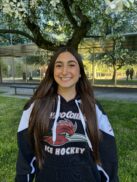

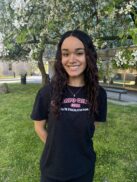
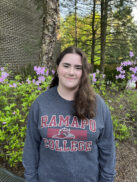
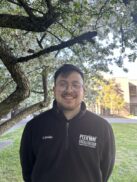
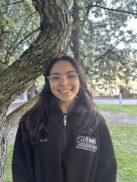
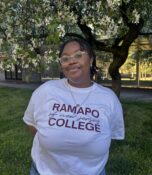
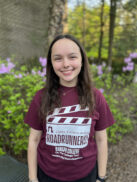



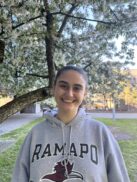
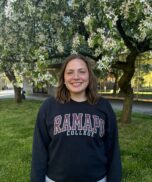


Follow Ramapo